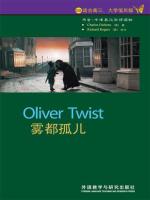Oliver Twist
ReadingdeSpring
"Oliver Twist" by Charles Dickens, commonly known as
"The Adventures of Oliver Twist," is a poignant narrative that
explores the harsh realities of Victorian society. The protagonist,
Oliver, born into poverty and raised in the oppressive workhouse,
embarks on a journey of survival and self-discovery. Dickens' vivid
characters and descriptive prose vividly depict the stark contrast
between the privileged and the destitute. The injustices faced by Oliver
tug at the reader's heartstrings, eliciting empathy for the struggles of
the downtrodden. The novel serves as a powerful critique of societal
inequities and the dehumanizing effects of poverty. Throughout
the story, themes of morality, compassion, and the search for identity
resonate. Oliver's unwavering innocence in the face of adversity
highlights the redeeming power of goodness. The novel underscores the
importance of empathy and compassion in a world tainted by greed and
corruption. As the narrative unfolds, Dickens weaves a tale of
resilience, friendship, and the possibility of redemption. The plot
twists and turns, keeping readers engaged and invested in Oliver's fate.
The novel's enduring relevance lies in its ability to prompt reflection
on social issues and the enduring human spirit. In conclusion,
"Oliver Twist" is a timeless classic that transcends its
Victorian origins. Dickens' portrayal of human struggles and the pursuit
of justice remains compelling, making the novel a thought-provoking and
emotionally resonant read.



 京公网安备 11010802032529号
京公网安备 11010802032529号